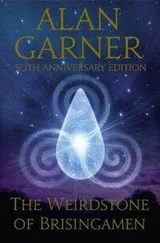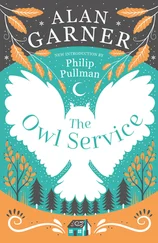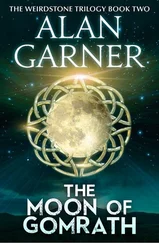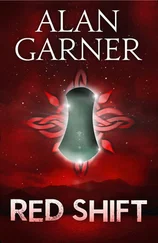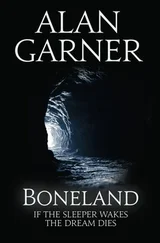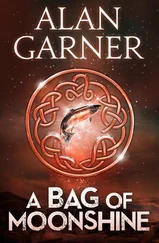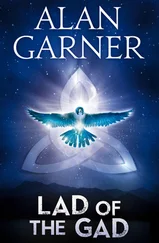Vukub-Cakix went home with the arm, still chattering vengeance, and he built a fire and put the arm on a spit to roast. Then he lay on his bed in a sulk and nursed his jaw.
Hun-Apu found his brother Xbalanque. “We must get my arm back,” he said, “before it’s cooked, or it will be stiff for life.” So they made their way as doctors to Vukub-Cakix’s house.
“We are famous doctors,” they said, “and from the noise we hear there must be somebody in need of us.”
“Aiee,” said Vukub-Cakix. “Aiee.”
“That sound I diagnose as a bad case of Grimgums,” said Xbalanque.
“Og, og,” moaned Vukub-Cakix.
“And that’s Eyetitis,” said Hun-Apu.
“They’ll have to come out,” said Xbalanque.
“Yes, all out,” said Hun-Apu.
“But shall I be cured?” said Vukub-Cakix.
“Cured?” said the twins. “Why, you’ll not recognise yourself.”
So they took out Vukub-Cakix’s teeth and put in grains of maize, but they gave him nothing for his eyes. And from that moment Vukub-Cakix was harmless. His colours faded, his mouth was no terror, and whether or not he died, or wandered in the forest as a beggar, no one knew or cared. Hun-Apu pulled his arm off the fire and stuck it back on his shoulder.
But the twins had not yet finished their work. Vukub’s two sons were still alive, and trouble enough without the need to avenge their father’s disaster. They decided to deal with Zipacna the Earthmaker first, and got four hundred young men to help them.
The young men pretended to be building a house. They cut down the biggest tree of Guatemala, and Zipacna found them heaving and straining to lift it.
“Oh, Sir,” they said, “please help us carry this tree. It is the ridge of our new house, which we are making as an offering to those two heroes, the sons of Vukub-Cakix.”
“Weaklings,” said Zipacna, and hefted the tree on to his shoulder.
“This way,” said the four hundred young men. “This way, if you please, Sir.”
The giant carried the tree through the forest to a clearing where the young men had dug a pit deeper even than the giant was tall.
“That is for the foundations, Sir,” they said. “Would you be so good as to take the tree down there?”
Zipacna jumped into the pit. “Foundations are a funny place for roof ridges, aren’t they?” he said. In answer, the young men piled logs and rocks on his head, and when the pit was a mound, they danced on it to celebrate the death of Zipacna.
But Zipacna was not dead. He was holding his strength, and when he felt that all the young men were above him on the mound, he burst upwards, the great mountainmaker, and his force sent the young men flying into the sky, where they have remained ever since as the Pleiades, waiting for someone to help them down.
Hun-Apu and Xbalanque had watched all this, and felt that they now had the measure of their enemy.
They made a ravine below a mountain range, and at the bottom of the ravine they carved an enormous crab out of stone, and painted it so that it seemed alive. Crabs were Zipacna’s favourite food. Then the twins spread the rumour that the biggest crab in the world was hiding in the ravine, and before long Zipacna came to investigate. When he saw the crab he swallowed it at a gulp.
“Good,” he said. “But heavy. No doubt I’ll be sorry.”
And he was. The twins diverted a river into the ravine, and Zipacna was too weighted to swim, and the twins pushed the whole range on top of him and shaped it into a single mountain over his head, so that Zipacna was both drowned and buried, and he lies under Mount Meahuan even now.
This left Cabrakan the Earthshaker.
The twins worked on him through his conceit.
They found Cabrakan throwing rocks about. He took no care for anything. If one flattened a village, it was just too bad.
“Good morning,” said Hun-Apu. “Would you tell us what you are doing?”
“Can’t you see?” said Cabrakan.
He lobbed a boulder into a maize crop.
“And who are you two?”
“We have no names,” said the twins. “We hunt with the blow-pipe, and since we never meet anyone, we need no names. But may we stay and watch you?”
“If you like,” said Cabrakan.
The twins sat and stared at Cabrakan with the unwinking eyes of children, and said nothing, nor showed themselves impressed by anything he did. Cabrakan tried all the harder to make these two hunters applaud, until after a week of mountain-hurling he was dizzy with hunger and fatigue.
Hun-Apu then shot a bird and baked it in clay for the giant, but the clay he used was poisoned, and when Cabrakan took up his work again he trembled as if with fever.
“Our father was a weak man,” said Xbalanque, “but he did all you have done. His favourite game was to throw that mountain over there into the sea.”
Cabrakan strove to focus his eyes through the sweat.
“What, that little white pimple of quartz?” he said. “That’s too small for me to bother with.”
“So you say,” said Hun-Apu.
“And so I’ll show,” said Cabrakan. He staggered to the hill and put his arms about it.
Now this hill was not like any other hill or mountain. It had no roots in the earth, but was a piece of the earth itself that showed through the land, an unbroken, shining rock that went on for ever beneath the giant’s feet.
So Cabrakan, exhausted by his efforts, poisoned by his enemies, took hold of the world and tried to lift it. His knees knocked like war-drums.
“We’ve been wasting our time,” said Xbalanque.
“I knew he couldn’t,” said Hun-Apu.
Cabrakan gave one great heave. The top of his head blew off. And that was the last of the race of Vukub-Cakix in Guatemala.
Brownie was a type of goblin that lived in and around the farmhouse. He would often work for the people on the farm, but he had an unpredictable temper, and sometimes, as in this story, he was much more trouble than he was worth.
 here was a brownie once who got above himself, and thought that because he stacked the hay (if he felt like it), and cleaned up in the kitchen (if it wasn’t too mucky), the whole farm belonged to him. He was for giving the farmer marching orders.
here was a brownie once who got above himself, and thought that because he stacked the hay (if he felt like it), and cleaned up in the kitchen (if it wasn’t too mucky), the whole farm belonged to him. He was for giving the farmer marching orders.
Of course farmer will have none of that, so brownie makes a great to-do at night, and it’s half a day’s work regular to clear up after him around the house. Well, then farmer gives over leaving milk out in a saucer by the hearth; and so it goes from bad to worse.
Anyway, brownie must have the big field, he says, and they chunner and chunner, calling each other all the names, so as women have to cover their ears for language. Anyway, it’s left that farmer will do the work, and they’ll share the crop half and half between them.
When Spring comes, farmer says, “Which will you have, tops or bottoms?”
“Bottoms,” says brownie.
So farmer plants wheat, keeps the grain for himself, and gives brownie the roots and stubble.
Next year, farmer says to brownie, “Which will you have, tops or bottoms?”
“Tops,” says brownie.
So farmer plants turnips, and brownie is left to make what he can of the leaves.
He’ll have none of it the next year: not tops or bottoms: he will not. Corn, says brownie, that’s what it must be, and the field divided in half, and brownie and farmer to have a mowing match, winner keep all.
Читать дальше
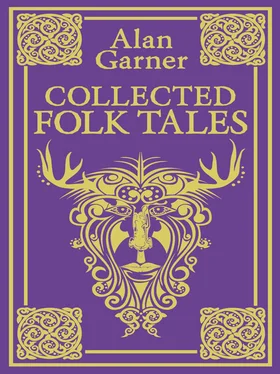

 here was a brownie once who got above himself, and thought that because he stacked the hay (if he felt like it), and cleaned up in the kitchen (if it wasn’t too mucky), the whole farm belonged to him. He was for giving the farmer marching orders.
here was a brownie once who got above himself, and thought that because he stacked the hay (if he felt like it), and cleaned up in the kitchen (if it wasn’t too mucky), the whole farm belonged to him. He was for giving the farmer marching orders.
